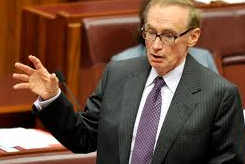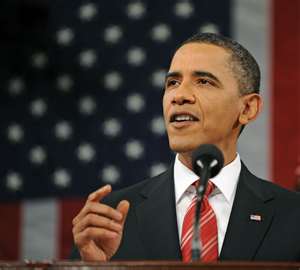Tom Bennion, a Wellington environment lawyer who has not flown since 2009, takes a look at the recent Environmental Protection Agency versus the “Coalition for Responsible Regulation” case in the USA.
Opponents of regulation of greenhouse gases in the US, including a number of states, have just received a spanking in the DC Court of Appeals, a level just below the Supreme Court. The court has thrown out a variety of challenges to EPA rules regulating greenhouse gases. I will briefly explain the ruling (pdf here) and then comment on prospects from here.
The background is that in 2007 the Bush era EPA argued that it could not regulate greenhouse gases as pollutants under the Clean Air Act. In Massachusetts v. EPA the Supreme Court determined that it could.
Subsequently, the Obama era EPA has made an “Endangerment Finding” that greenhouse gases may “reasonably be anticipated to endanger public health or welfare.” Then it issued a “Tailpipe Rule” setting emissions standards for cars and light trucks which would save around 960 million metric tons of CO2e emissions. It also issued “Timing and Tailoring Rules” requiring only the largest stationary sources such as new power stations to meet emissions standards, on the basis that regulating every small polluter would be overly onerous.
Various states (drought afflicted Texas and thawing Alaska among them) and industry groups attacked both the Endangerment Finding and the rules on the basis that the Endangerment Finding and Tailpipe rules were “arbitrary and capricious” exercises of discretion by the EPA resulting from factual and procedural errors, and a misreading of the Clean Air Act.
The three member appeal court threw out all of the challenges.

 “The land we call our home, the land owned by this sweet funny brave people is being transformed, as is the rest of the planet. And yes, since the late eighties I have been an unapologetic believer in the grim reality that human activity is changing the earth’s climate.”
“The land we call our home, the land owned by this sweet funny brave people is being transformed, as is the rest of the planet. And yes, since the late eighties I have been an unapologetic believer in the grim reality that human activity is changing the earth’s climate.” While the noble Lord, Viscount Christopher “I’m no potty peer” Monckton
While the noble Lord, Viscount Christopher “I’m no potty peer” Monckton  I look back with some embarrassment on my enthusiastic posts when Barack Obama was in the early days of his presidency. I thought he was offering strong political leadership in addressing climate change. His words seemed unequivocal. Here he is
I look back with some embarrassment on my enthusiastic posts when Barack Obama was in the early days of his presidency. I thought he was offering strong political leadership in addressing climate change. His words seemed unequivocal. Here he is  Al Gore’s book The Assault on Reason, which followed An Inconvenient Truth, was published in 2007 and revealed an impressive intelligence in its analysis of how America was losing the rule of reason in democratic discourse, the Enlightenment ideal which was a founding principle of the new republic in the 18th century. America’s people were not participating in the conversation of citizens essential to functioning democracy, with a consequent diminishment of reason, logic and truth in decision making. Television and advertising had been appropriated and used to make for a passive citizenry which expects no engagement in the political process.
Al Gore’s book The Assault on Reason, which followed An Inconvenient Truth, was published in 2007 and revealed an impressive intelligence in its analysis of how America was losing the rule of reason in democratic discourse, the Enlightenment ideal which was a founding principle of the new republic in the 18th century. America’s people were not participating in the conversation of citizens essential to functioning democracy, with a consequent diminishment of reason, logic and truth in decision making. Television and advertising had been appropriated and used to make for a passive citizenry which expects no engagement in the political process.